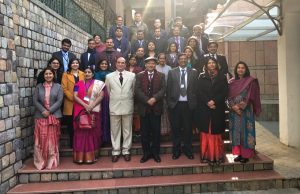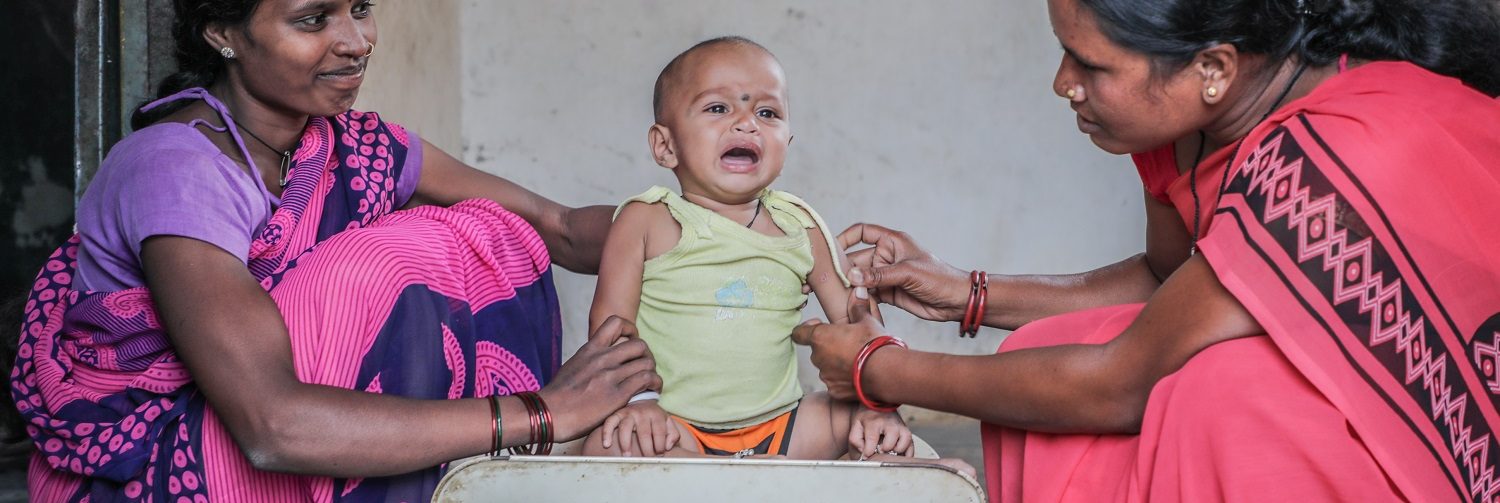
District-level functionaries stepping up to India’s nutrition challenge (Image courtesy: National Gender Centre, LBSNAA)
With POSHAN Abhiyaan (PM’s Overarching Scheme for Holistic Nourishment), earlier called the National Nutrition Mission, India has taken a major step in the direction of holistically addressing the complex and multidimensional problem of malnutrition. To achieve the goal of malnutrition-free India by 2022, concerted efforts are being carried out at the district-level, because the battle against malnutrition in India is primarily being fought at the village, block and district levels.
To better equip the district administrators for this nutrition challenge, a short nutrition workshop was held at the Lal Bahadur Shastri National Academy of Administration (LBSNAA), Mussoorie, from 13-15 February 2019. Jointly organized by the Ministry of Women and Child Development (MoWCD), National Institution for Transforming India (NITI Aayog) and LBSNAA, with technical support from IFPRI, IDInsight and Project Concern International (PCI), the key objective of this workshop was to promote the understanding and capacity of the district administrators on nutrition and nutrition related policies and programs in the country. Various district-level functionaries from 11 states participated in the workshop. This was second workshop of its kind, aimed at equipping the district-level functionaries.
Interspersed with classroom sessions and hands-on activities, spread over two and a half days, the focus was on helping the participants understand their role in identifying areas of-action at the district level and to strengthen their use of data and evidence to address the problem of malnutrition in their districts. Sanjiv Gajraj, from MWCD, gave an overview of POSHAN Abhiyaan and explained why investment in nutrition in the first 1,000 days of a child’s life is particularly important.
Highlighting the significance of a vision for malnutrition-free India, Alok Kumar, Advisor, NITI Aayog said, “If there is a death due to hunger, the media forces the government to respond. But what we see more commonly is the slow withering away of children. People are not paying enough attention to this.” He explained how this is not just about food. Since it is an intergenerational problem a life-cycle approach needs to be adopted, taking into account other related issues like child marriage and low birth spacing. Purnima Menon from IFPRI and Arti Ahuja from LBSNAA gave insights for understanding malnutrition, tackling its main drivers and adopting a systems thinking for addressing it.
Specific examples from Chhattisgarh and Uttar Pradesh on strengthening existing nutrition and related sector policies to address the determinants of malnutrition and galvanising actions under POSHAN Abhiyaan to generate community participation were presented by the respective state WCD Secretary and Principal Secretary. Indrajit Chaudhuri, from PCI presented JEEViKA as a case study for strengthening nutrition-related actions. The IDInsight team talked about strategic planning for health and nutritious using data for informed action. Rama Kamaraju, from NITI Aayog explained about the Transformation of Aspirational Districts Program.
The participants had a chance to engage in various group activities and do a diagnostic of the nutritional status of their own districts. Looking at the survey and administrative data, they identified the main causes of each of the problems and came up with actionable steps to solve them within the district. On the final day the participants made their presentations. Their proposed solutions included system-level changes, such as creating nutrition-specific celebrations and holidays, monitoring the quality and availability of measurement equipment at the AWCs and working closely with a variety of stakeholders like school officials and religious leaders in order to improve nutrition outcomes.
Sharing her feedback, a DPO from Bihar said that she found the workshop extremely motivating and would like the facilitators to conduct a similar exercise for other DPOs in Bihar. “This workshop has enabled us to get an easy understanding of nutritional data and link it to action for improvement,” said another participant. “If gender disaggregation is highlighted in nutrition data, we can further fine-tune our understanding and get a clearer picture of the situation,” suggested a participant.
The participation of district-level functionaries is vital in bringing about any improvement in the overall nutrition outcomes in India. This workshop was an important step in equipping the district administrators with insights and capacity to ensure sustained progress in maternal and child nutrition.


